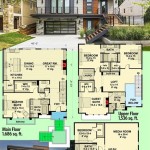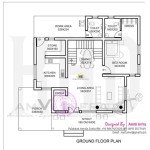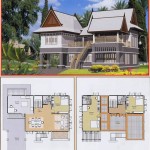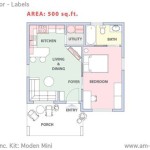Essential Aspects of Architectural Plans for Houses
Architectural plans serve as the blueprint for your dream home, guiding the construction process and ensuring a functional and aesthetically pleasing living space. Understanding the critical elements of these plans is crucial for homeowners to make informed decisions and create a home that meets their specific needs and aspirations.
1. Site Plan
The site plan lays out the overall arrangement of your house on the property. It outlines the location of the building, driveways, walkways, and any other exterior features. This plan helps determine the home's orientation to the sun, prevailing winds, and surrounding landscape, optimizing natural light, ventilation, and views.
2. Floor Plans
Floor plans provide a bird's-eye view of each level of your house. They show the location of rooms, walls, windows, doors, and other interior elements. Floor plans ensure optimal space utilization, efficient traffic flow, and adequate natural lighting throughout the home.
3. Elevations
Elevations depict the exterior appearance of your house from different sides. They show the height, shape, and style of the building, including windows, doors, trim, and other architectural details. Elevations are crucial for visualizing the curb appeal and overall aesthetic of your home.
4. Sections
Sections cut through the house to reveal the interior structure and vertical relationships. They display the height of rooms, ceiling heights, and the location of structural elements such as beams, columns, and stairs. Sections help engineers and builders understand the three-dimensional composition of your home and ensure its structural integrity.
5. Details and Specifications
Architectural plans also include detailed drawings and specifications that provide specific information about materials, finishes, and construction techniques. These include details of joinery, cabinetry, lighting fixtures, and other building components. These specifications ensure that your home is built to the highest standards and meets your desired aesthetics.
6. Site Utilities
Site utility plans outline the location and connection points for utilities such as water, sewer, gas, and electricity. They indicate the placement of septic tanks, wells, electrical panels, and other utility infrastructure. These plans ensure that your home has access to essential services and complies with local building codes.
7. Energy Efficiency Features
In today's eco-conscious climate, architectural plans often incorporate energy-efficient features. These may include details of insulation, energy-efficient windows, solar panels, and rainwater harvesting systems. By considering energy efficiency during the design phase, you can minimize operating costs and create a sustainable home.
Conclusion
Architectural plans are a comprehensive guide for constructing a house that meets your needs, reflects your style, and stands the test of time. Understanding the essential aspects of these plans empowers homeowners to collaborate effectively with architects, builders, and engineers. By paying attention to details, considering long-term functionality, and embracing sustainable practices, you can create a home that is both beautiful and livable for years to come.

House Plans How To Design Your Home Plan

House Plans Home Floor Architecturalhouseplans Com

House Plans How To Design Your Home Plan

Floor Plan Wikipedia

Where You Can Buy House Plans Live Home 3d

Do You Imagine When We Create Your Imagination Into Reality With The Low Architectural House Plans Projects Architecture Building Designs

Floor Plans Learn How To Design And Plan

Importance Of House Floor Plans In Architectural Design

How To Build A House From Paper Plaster Architectural Digest

Top 5 Modern House Plans With Photos Floor Archid








